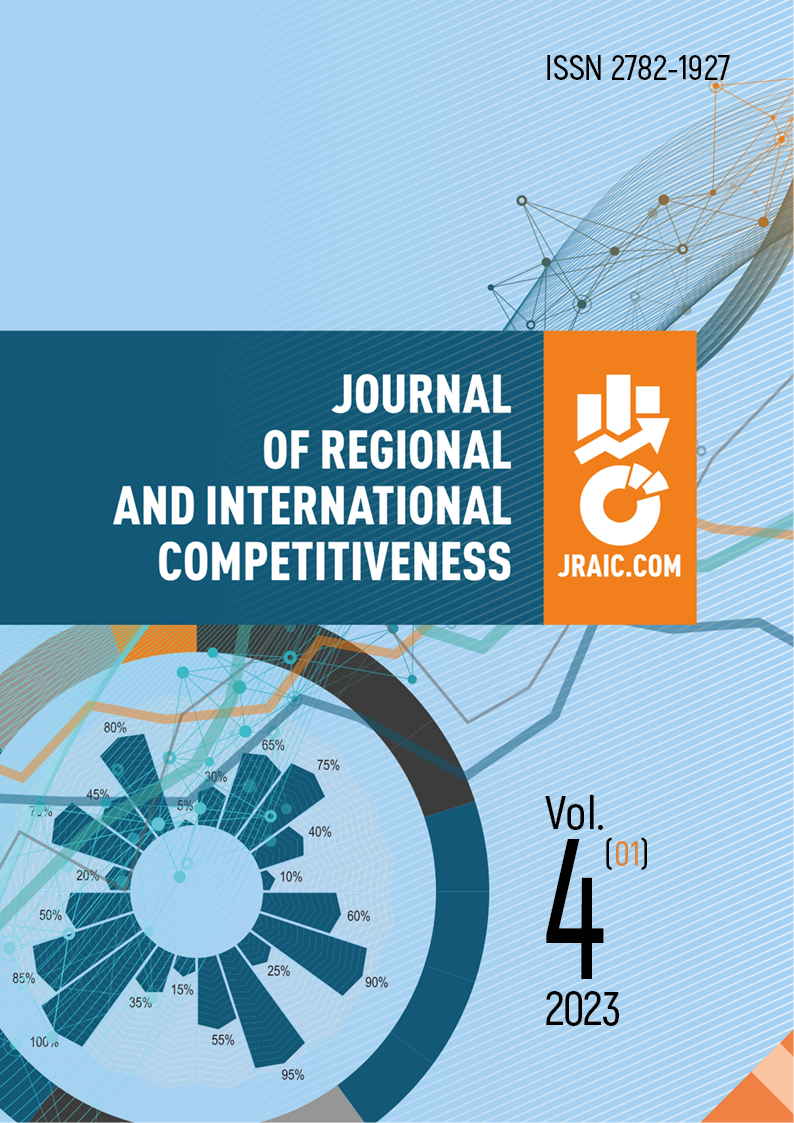Курск, Курская область, Россия
The competitiveness of the economy is its ability to develop steadily under the conditions of the modern intensification of the world redistribution struggle. The material basis of economic competitiveness is the developed machine-building. It forms the technical equipment of the whole machine-building industry, creates the labour means for all branches of the economy and determines the level of their efficiency. The study of Russian machine-building indicators for 2005-2022 reveals a number of negative trends and factors generating these trends. At the same time, the analysis shows an objective possibility for a significant acceleration of the machine-building development existed in the country. They consist primarily in the use of the trade balance surplus for the import of equipment and components, aimed at the technical renewal and expansion of machine-tool construction industry and further - of other machine-building industries. Using the construction and analysis of the annual inter-branch production and distribution balances of gross social product for the period 2005-2019, we reveal the interrelations in the development of the main industries. Also we found the dependence of the material and labour intensity indicators on the technical armament of labour in the industries. The calculations performed provide a basis for the conclusion stating as follows: if the current account surplus materiality were used for purchasing imported equipment and re-equipping machine-building, then within 10-15 years Russia could achieve a significant approach to technological sovereignty and overcome its dependence on imported equipment by increasing its exports. We provide the calculations for the period 2016-2020 as an illustration. In accordance with these data, the main internal factor preventing the revival of domestic machine-building is the relationship of private ownership of the means of production, and the external factor is the anti-Russian sanctions. In this regard, we propose a variant to mitigate the effect of negative factors, based on increasing the role of the state in the economy and the use of state planning.
ROLE OF MACHINE TOOL INDUSTRY, INDICATORS AND TRENDS IN MECHANICAL ENGINEERING, FACTORS HINDERING THE DEVELOPMENT OF MECHANICAL ENGINEERING, THE RELATIONSHIP OF THE MAIN SECTORS OF THE ECONOMY, EFFECT OF FOREIGN TRADE, RESERVES FOR ACCELERATING THE DEVELOPMENT OF MECHANICAL ENGINEERING, DIRECTIONS OF THEIR USE, THE ROLE OF THE STATE IN ACCELERATING THE DEVELOPMENT OF ENGINEERING
1. Rezvanova, A. (2023). The Russian economy is embarking on the path of long-term development. KazanFirst. Retrieved from: https://kazanfirst.ru/articles/609967 (accessed 23.03.2023) (in Russian).
2. Mehanik, A. (2022). The difficult life of machine tools. Incentive. Stimul. Retrieved from https://stimul.online/ articles/sreda/trudnaya-zhizn-stankov/ (accessed 23.03.2023) (in Russian).
3. Rezvanova, A. (2023). Shortage of personnel, production of drones and mess in canteens: how Tatarstan’s industry works. KazanFirst. Retrieved from https://kazanfirst.ru/articles/609967/ (accessed 03.24.2023) (in Russian).
4. Fomin, D. (2022). Scientific and technological progress: Investment component. Terra Economicus, 20(1), 52-64. Retrieved from https://te.sfedu.ru/en/journals/2022/189-no-1.htmlhttps://www.vesti.ru/hitech /article/3273792 (accessed: 03.28.2023).
5. Lymar, M. S., Reentovich, A. A., & Sinyakov, A. A. (2022). The export-raw materials economy in the conditions of the “new reality”: aggregate and structural changes. Ekonomicheskiye voprosy, (12), 44-71 (in Russian).
6. Vinokurov, E. Yu., & Grichik, M. V. (2022). A new concept of international reserve assets: security, diversification and unconventional approaches. Ekonomicheskiye voprosy, (12), 24-43 (in Russian).
7. Ershov, M. V. (2022). The Russian economy is facing new sanctions challenges. Ekonomicheskiye voprosy, (12), 5-23 (in Russian).




















